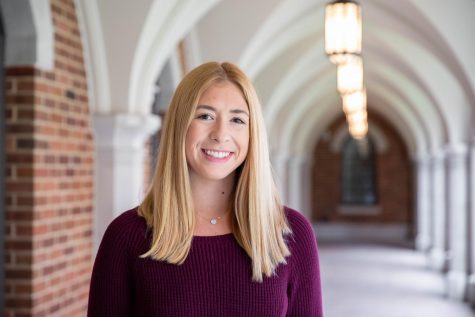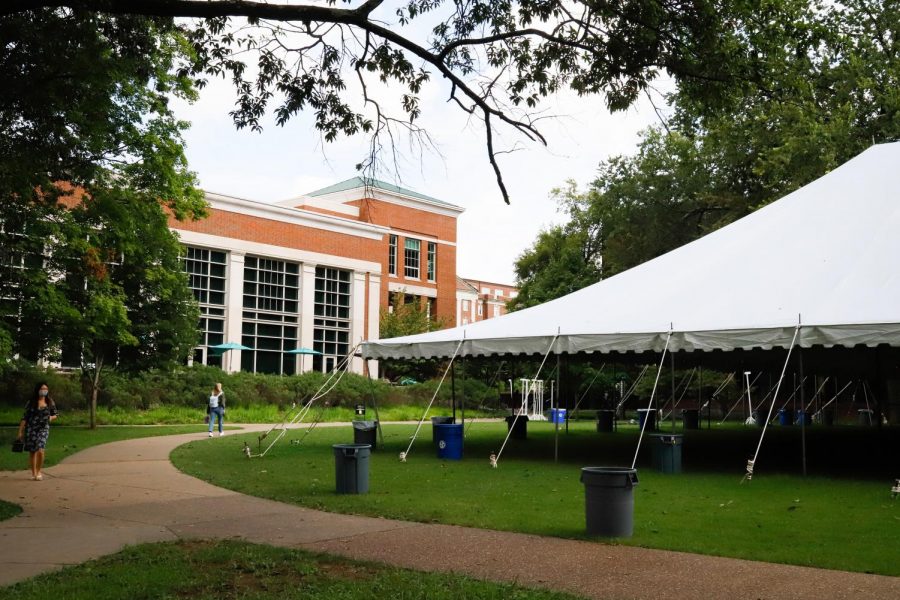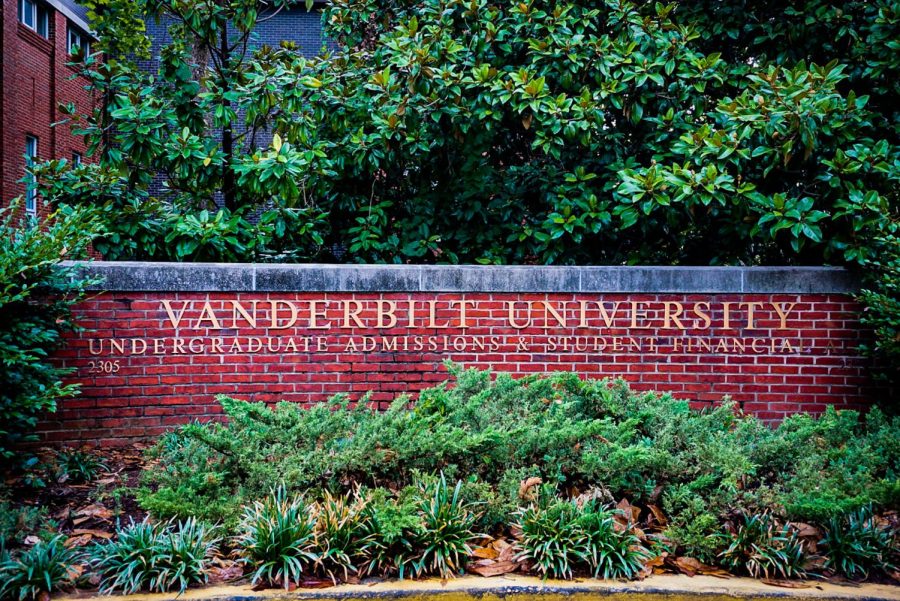During the VSG Senate Session held April 15 via Zoom, Interim Chancellor and Provost Susan Wente announced that she had approved the flat release of the federally allocated funds for students eligible for federal financial aid.
Under the Coronavirus Aid, Relief and Economic Security (CARES) Act, Vanderbilt was granted $5.6 million by the U.S. Department of Education, $2.8 million of which is designated as “Minimum Allocation to be Awarded for Emergency Financial Aid Grants to Students.”
Students will be notified of the grant awards by email today, according to Wente. Specifically, Wente said that 2,448 students — 1,316 undergrads and 1,132 graduate and professional students — will receive funds. This represents roughly 19 percent of undergrads and roughly 18 percent of graduate and professional students. These students will receive $1,100 in addition to any other disbursements, including from the hardship fund, ongoing work-study and increased financial aid due to change in circumstances.
“Vanderbilt will disburse funds to qualifying students through the normal process via Student Accounts in the coming days,” a Vanderbilt spokesperson said.
In line with Department of Education recommendations, Vanderbilt is distributing the funds to students with greatest need, or students with an expected family contribution of $10,000 or less, according to a Vanderbilt spokesperson. Undergraduate recipients must have received financial aid for the spring 2020 semester, and graduate or professional school recipients must have received federal student loans this spring, according to a press release.
“The university made this choice to help the low-income students as they are the most at risk in this current crisis and their success is of such great importance to not only our university but to society,” Wente said. “Both the university and the nation are building on prior investments in supporting your generation.”
The CARES Act is the largest stimulus bill in U.S. history, totaling $2 trillion in aid with $14 billion specifically for higher education. The funding each educational institution received was based upon the proportion of Pell Grant-eligible students and the overall enrollment, and the money was meant to be distributed as such. Fifty percent of the $14 billion is stipulated to be “direct-to-student” allocation. The bill suspends federal loan payments interest-free until Sept. 30 but does not include any broad loan forgiveness.
Wente stated that her number one priority was to take care of members of the community. Vanderbilt has already provided $5.2 million in adjustment payments for the early departure from campus, Wente said. Wente also confirmed that all employees have been paid for the duration of the stay at home order, and she said that this payment would continue until at least April 30.
“Like some of our peer universities, we do anticipate we’re going to need to make some budget changes for the next couple years,” Wente said.
In recent days, Baylor University has announced budget cuts of up to $80 million while Harvard has already lost $30 million in expected revenue due to the coronavirus, making the call to cut discretionary spending and payment of top administrators by 25 percent. This semester alone, schools like the University of California-Berkeley and the University of Wisconsin-Madison expect losses of about $100 million, as worries mount of increasing losses if students can’t return in the fall.
A hiring freeze tool from Candor shows that Vanderbilt has implemented a hiring freeze, though the university has not announced any official plans to handle the economic impact of the coronavirus.
Wente said that she hoped the budget changes would be done in a way to not impact our teaching and research missions. She said that these changes are a result of the overall economic downturn.
“That’s because, during that period of time, we will not decrease our commitment to funding Opportunity Vanderbilt. We will remain fully committed to that,” Wente said.
That night, a bill called “Refund Enhancements for Undergraduate Need & Demand Act,” which called for full predetermined refunds for all students was passed by student senators. The resolution was proposed by five student senators, VSG president emeritus Frances Burton, VSG vice president-elect Shun Ahmed and select members of Questbridge and FirstVU, student organizations for low-income and first generation students.
A petition for the same cause garnered 1,532 signatures. While students at the senate session said they were grateful for the CARES Act funding, they asserted that the amount being provided to students was still inadequate. Students on financial aid are receiving too little, and students who aren’t on financial aid are still not receiving prorated refunds, they said.
“A lot of Vanderbilt’s peer institutions that we’ve referenced in this bill are providing significantly more than Vanderbilt is providing, even with the CARES Act,” Questbridge president Amelia Taylor said in the discussion of the bill. “A lot of these schools have issued statements that they know that students’ costs have not decreased because they are at home, oftentimes, they have increased, so they are working proactively to provide full refunds to these students.”
Vanderbilt provided refunds based in proportion with the amount students paid; that is, students paying ten percent of total cost of attendance received ten percent of the $1,380 maximum housing refund and students on full financial aid received a $200-$400 student hardship fund grant. Students on financial aid can apply for relief through the hardship fund, which provides a grant up to $500 to help cover additional costs, according to Vanderbilt’s coronavirus FAQ.
FirstVU external affairs liaison Bitiania Endalkachew said that some costs are difficult to measure and may result in a student being denied for the hardship fund. For example, if a student is living at home, they may be burdening their family with costs like extra food and increased utilities, Endalkachew said.
Other supporters of the bill spoke about Vanderbilt’s obligation to reimburse students for services that they paid for but didn’t receive.
“In the business world, when you fail to provide a service that people pay for, that’s usually called fraudulent activity,” Crawford and Murray Senator Michael Gallego said during deliberation.
In her speech before the senate session, Wente said that she is confident that Vanderbilt will take the right actions, but that the right actions are difficult ones. She also said that she is aware of and thankful for the sacrifices that members of the community have made in the name of public health.
“What I know about our Vanderbilt family is that we’re going to continue to take care of each other,” said Wente.
Correction: This article has been updated April 16 9:48 a.m. to reflect that the VSG Senate bill mentioned requested full pre-determined refunds for all students, not full prorated refunds for all students.























